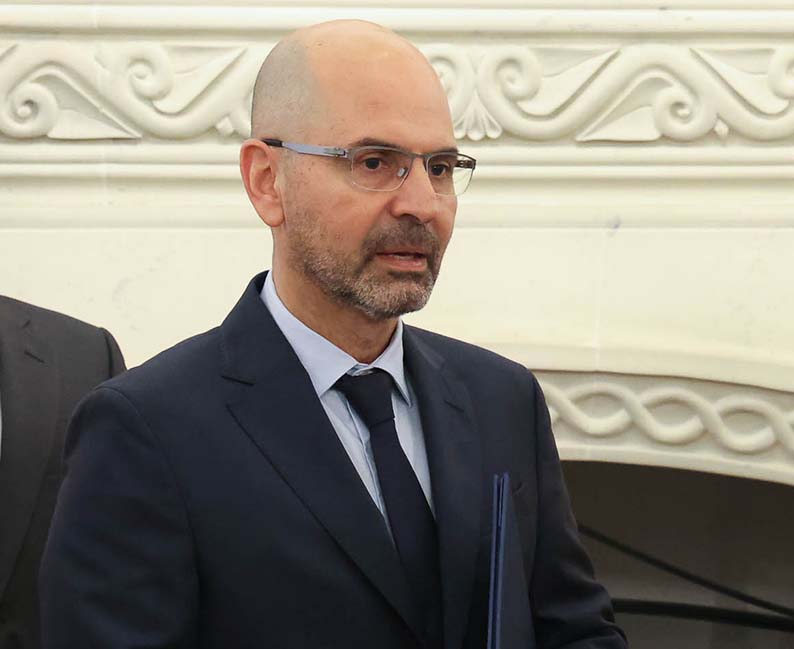The House plenum on Thursday enacted the reform of the Audit Office, which bolsters the financial autonomy of the agency, tightens up the qualifications of persons appointed to the post of auditor-general and deputy auditor-general, and introduces term limits for these two positions.
Passing the legislation also involved amending the constitution – the 21st amendment.
Under the changes, the auditor-general and the deputy will serve a single eight-year term, without the possibility for renewal. They would retire at the age of 68. For example, if the auditor-general is appointed at the age of 64, he or she would serve just four years and then retire. Or if appointed at the age of 52, they would serve until the age of 60.
However, this does not apply to the currently serving auditor-general, as he was appointed under existing regulations. He will therefore serve in the post until his retirement – the age of 65.
Andreas Papaconstantinou, the current auditor-general, was appointed to the position in October last year. He is 54 years old.
Going forward, neither the auditor-general nor the deputy will have the status of a permanent civil servant. But again, this does not apply to Papaconstantinou, who was appointed as a full-time civil servant. Rather, it will apply to his successors.
In addition, with the coming changes the Audit Office will gain financial autonomy – in that it will draft its own budget. The agency’s balance sheet will feature as a separate item in the annual state balance sheet.
The House plenary meanwhile voted down amendments tabled by opposition party Akel seeking to place restrictions on who could serve as auditor-general or deputy.
Under the Akel amendment, the two positions would have been closed to persons who serve, or served, as a government minister during the term of the president of the Republic who appoints them to the post of auditor-general or deputy.
This means that if such persons held the position of minister, but were appointed minister by a former president, they would be eligible to be considered for the post of auditor-general or deputy.
Also barred from being considered as auditor-general or deputy, would be persons who serve as MPs at the time of appointment to the Audit Office. Former MPs (as at the time of appointment) would be eligible.
Likewise senior political party cadres, or persons with decision-making powers within a political party, would have been excluded from consideration for the post of auditor-general or deputy.
The Akel proposal was designed to keep the top two positions in the Audit Office at arm’s length from party politics, ensuring as far as possible that they are objective public functionaries.
Meantime, the reform of the Audit Office enacted on Thursday does not include the establishment of a so-called ‘audit council’ comprising three individuals overlooking the auditor-general.
The establishment of this audit council had formed part of the original legislation tabled by the government. But Papaconstantinou fought hard against it, arguing it would create a ‘Big Brother’ situation inside the Audit Office, effectively hamstringing the work of the agency.
Justice Minister Marios Hartsiotis had tried to argue that the proposed audit council would not exercise administrative oversight on the Audit Office – it would merely make ‘recommendations’ on reports issued by the agency.
But despite his best efforts he had failed to convince MPs, who sided with Papaconstantinou. The provision was stricken from the text of the law put before the plenum.
In remarks on the House floor, Dipa MP Alekos Tryfonides hailed the passage of the legislation as “another step toward boosting the rule of law, accountability and good governance”.
Akel’s Andreas Tryfonides had a different take, noting that it does not really constitute a reform, although it does contain some positive elements – such as limiting the auditor-general and the deputy to one eight-year term.






Click here to change your cookie preferences